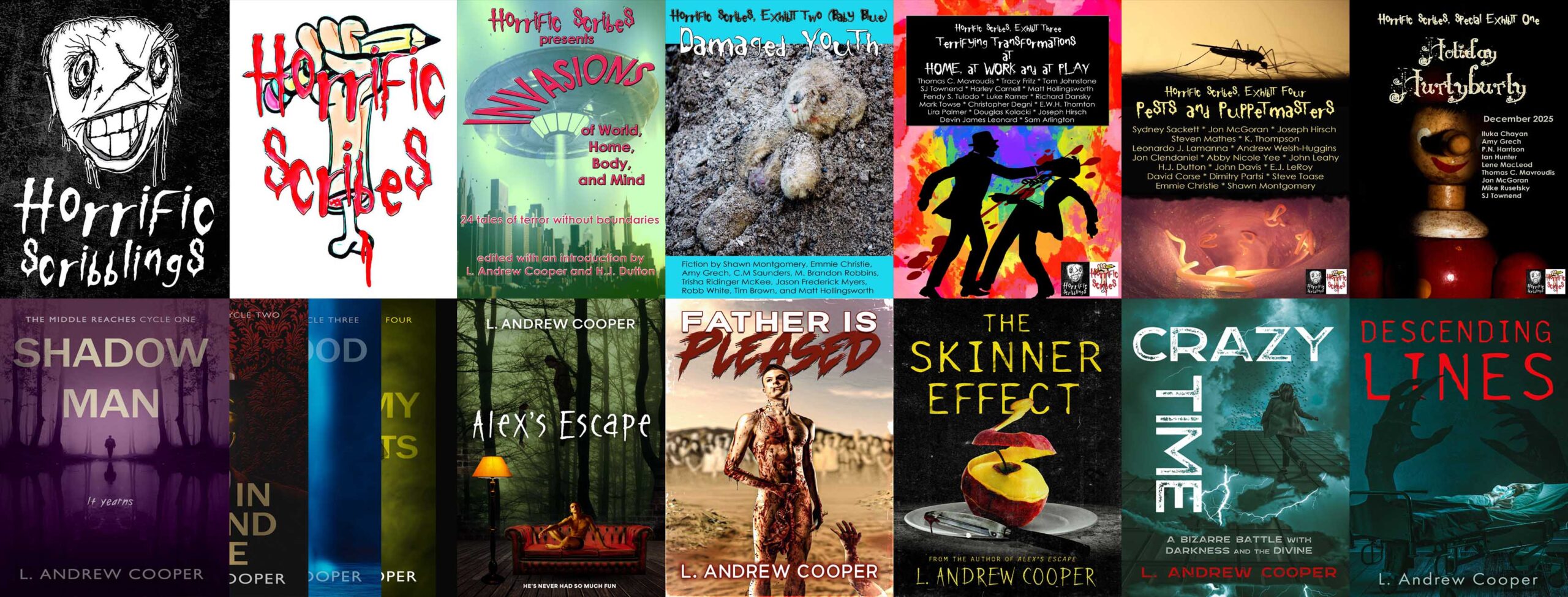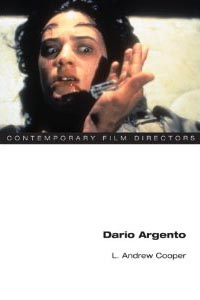Okay, misleading title–I wrote Dario Argento because I love most of his movies. I’m a fanboy, but this blog is about why my book takes a very non-fanboy approach to his work.
A recent Facebook discussion, spurred by a not-particularly-flattering review by Clayton Dillard in the online Slant Magazine, has inspired me to elaborate a bit on why I bothered to write a book about a single director, published in a “Contemporary Film Directors” series, no less, while eschewing the “auteurist” approach traditional for categorizing films according to their directors and considering directors as films’ “authors.”
Quite reasonably, on Facebook, Mr. Dillard asks, “the idea of a book titled with the name of a director — that does NOT take an auteurist approach — is a fascinating one, without question. But, doesn’t the very structure of the book (having to talk about all of his films) resist this kind of desired examination?”
The series resists my approach, but I followed all the series’ rules: I focused on the majority (not the entirety) of a single director’s works, I provided some juicy biographical notes, and I showed chronological developments and trends, emphasizing critical perspectives without merely providing a chronological history of the director’s production. What I refused to do, however, is focus on questions of stylistic development over time, particularly as they pertain to the director’s personal relationships, psychological struggles, personal visions, or individual prejudices or hangups. I am not interested in what Mr. Dillard refers to as “a more existential explanation for Argento’s cinema.” I think Mr. Argento is someone I’d very much like to know, but I don’t know him, and I don’t feel like I need to know him to find meaning in his works. I see trends of meaning in his works without needing to delve into the mysteries of a singular human being behind them. I am interested in psychoanalysis as a phenomenon, but I am not a psychoanalyst. My goal in Dario Argento is to develop a methodology for approaching the oeuvre of an auteur for which the actual identity and interiority of the auteur is more or less irrelevant. I think I succeeded. If “Dario Argento” turns out to be a group of quadrupedal aliens posing as a single Italian man who likes to cast his daughter in strange roles, my arguments will not need to change significantly.
The bottom line is that auteurism, the politique des auteurs, was useful in its day, but that day was a long time ago, and it’s over. Its originators in the Cahiers du Cinema have more or less admitted that they exaggerated their cases for political ends. The idea that art was great depended on it coming from the imaginations of great men, so, in order to be treated as art, film had to be attributed to great individuals rather than great collaborations, hence the Godards and Truffauts and so on. Timothy Corrigan and others have usefully helped us to keep thinking about auteurs as marketing phenomena; the director as master artist is still a useful and meaningful concept. I mostly think of “Dario Argento” as a brand. In my book Dario Argento, “Dario Argento” is a brand that marks a series of films with common rhetorical strategies.
My book divides the strategies into four movements. The first movement pits the Argento brand against criticism, particularly feminist criticism, which I epitomize through Laura Mulvey and other commonly anthologized figures (after all, the book is supposed to be accessible to undergrads and layfolk). Mr. Argento may or may not be misogynistic (I think not, but I don’t know, and his films’ violence will always lay the films open to such accusation), but they rhetorically open dialogue with accusations of misogyny that are potentially productive. The second movement pits the brand against psychoanalytic interpretation. The third, against narrative. The fourth, against genre conventions. I feel my job was to give the most attention to the best-known works, so there’s more on Bird with the Crystal Plumage (1970) in relation to Psycho (1960), the intertextuality of which got Argento dubbed “The Italian Hitchcock”, than on lesser-known works. I also provide lots and lots of commentary on Suspiria (1977) and Inferno (1980). I do give Argento’s later works less space (but MUCH more space than Maitland McDonagh’s 2010 reissue of her 1994 book version of her master’s thesis). I think these works are worth consideration, and I do have things to say about them that I think indicate important contributions to film history, but proportions reflect market interests in addition to general assessment of the films’ importance. However much I may like Sleepless (2001)–which is brilliant–it’s nowhere near as important in film history as Suspiria, so I’m not going to apologize for giving it fewer pages in a book that’s supposed to give readers an intro to the director’s oeuvre.
If you really want a good auteurist take on Dario Argento, I can’t offer a strong enough recommendation of Alan Jones’s work. When working on my book, Jones’s was called Profondo Argento, but now he has Dario Argento: The Man, The Myth, & The Magic (2012). Jones has been right beside Argento through almost every step of the maestro’s career, so no one is likely to top his insights into what makes the man tick. If you want plot summaries, production notes, and trivia, James Gracey’s Dario Argento (2010) is pretty darned useful. There are lots of other popular books on the maestro out there, the only ones of which I can recommend are Chris Gallant’s Art of Darkness (2002) and Luigi Cozzi’s Giallo Argento (2006… pretty much have to order it directly from Rome). The only other academic book I know of in English is Maitland McDonagh’s, and other than it being first, I only commend its Jungian and Proppian analyses of the first two of the Three Mothers films. Otherwise, well, read my book instead.
I hope I’m not encouraging more bad reviews by responding at such length to them, but really, I appreciate Clayton Dillard for saying things that were smart enough to be worth responding to, agreeing in large enough part to disagree in small parts worth explaining. Thank you, Mr. Dillard. You are an insightful critic. I hope this dialogue is but a first.


Comments are closed.